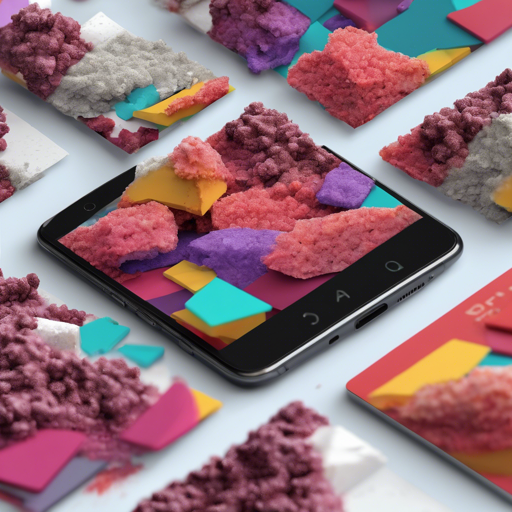Welcome, aspiring developers! Have you ever wanted to add a visually stunning crumble animation to your Android app? Well, you’re in for a treat! We are about to transform your views into a flurry of tiny pieces, reminiscent of an epic space battle in Star Wars.
Getting Started: Requirements
Before you embark on this virtual journey, ensure you have the following:
- Android SDK 15 or higher
- OpenGL ES 2.0 or better
Adding the Component to Your Project
The first step is to add our nifty library to your project. Simply include the following line in your module’s build.gradle file:
dependencies { ... compile 'com.yalantis:starwarstiles:0.1.1'}Setting Up the Animation
Now it’s time to wrap your fragment or activity’s main view in a TilesFrameLayout. This will be your animation canvas.
Here’s how you can do it:
<com.yalantis.starwars.TilesFrameLayout
android:id="@+id/tiles_frame_layout"
android:layout_height="match_parent"
android:layout_width="match_parent"
app:sw_animationDuration="1500"
app:sw_numberOfTilesX="35">
<!-- Your views go here -->
</com.yalantis.starwars.TilesFrameLayout>Adjusting Animation Parameters
You can customize the animation with the following parameters:
– app:sw_animationDuration: Time for the animation (in milliseconds)
– app:sw_numberOfTilesX: Number of square tiles the screen will be divided into
Starting the Animation
In your activity or fragment, here’s how to initiate the animation:
TilesFrameLayout mTilesFrameLayout = (TilesFrameLayout) findViewById(R.id.tiles_frame);
mTilesFrameLayout.setOnAnimationFinishedListener(this);
mTilesFrameLayout.startAnimation();Handling Lifecycle Events
It’s crucial to manage your animation’s lifecycle effectively. Use the following methods in your activity or fragment:
@Override
public void onResume() {
super.onResume();
mTilesFrameLayout.onResume();
}
@Override
public void onPause() {
super.onPause();
mTilesFrameLayout.onPause();
}Callback After Animation
Lastly, you’ll want to handle the event when the animation concludes:
@Override
public void onAnimationFinished() {
// Hide or remove your view
}Every Great Adventure Comes with Troubleshooting Tips
Even in a galaxy far, far away, things might not go as planned. Here are some troubleshooting tips:
- Ensure that your OpenGL ES is correctly configured.
- Check for any conflicting animation parameters that may affect performance.
- Make sure that you’ve implemented the lifecycle methods correctly to avoid crashes.
- Test your animation on multiple devices to ensure consistent behavior.
For more insights, updates, or to collaborate on AI development projects, stay connected with fxis.ai.
Conclusion
And there you have it! You’ve successfully added a crumble view animation to your Android app influenced by the iconic Star Wars. Get ready to surprise your users with this engaging visual component.
At fxis.ai, we believe that such advancements are crucial for the future of AI, as they enable more comprehensive and effective solutions. Our team is continually exploring new methodologies to push the envelope in artificial intelligence, ensuring that our clients benefit from the latest technological innovations.
Join the Community!
We would love to hear from you. If you have questions or suggestions, don’t hesitate to reach out. Happy coding!

